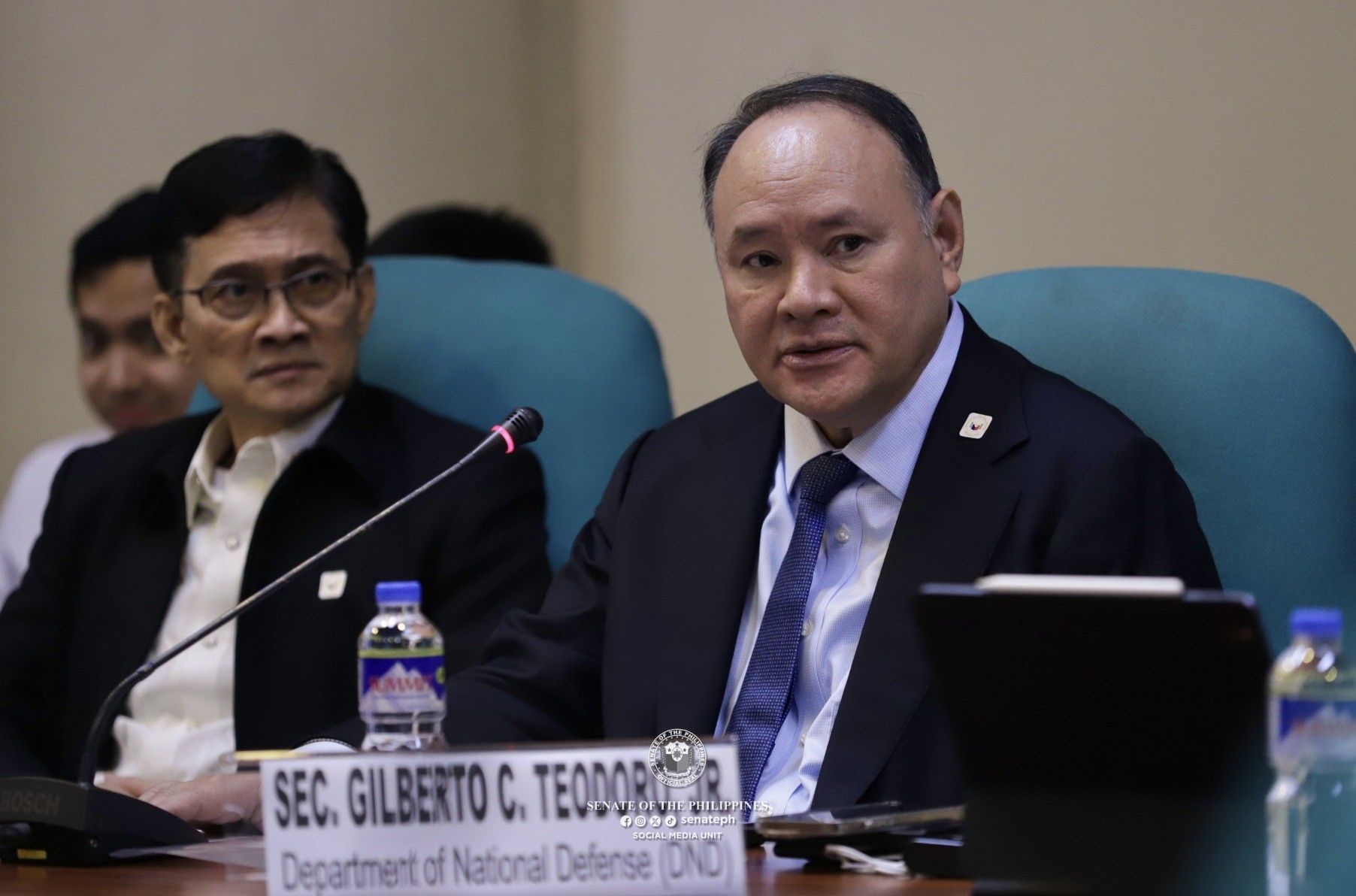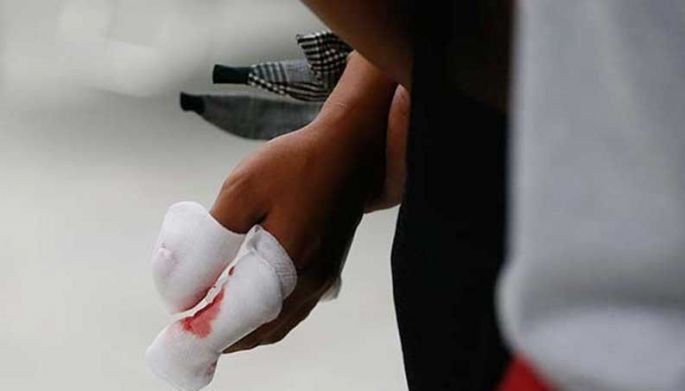Philippines urged Japan to include 'respect for IP rights' in military deal — Teodoro

MANILA, Philippines — Defense Secretary Gilberto Teodoro told senators on Monday, November 25, that the Philippines pushed for and secured environmental and indigenous peoples' rights protections in its newly signed military access agreement with Japan.
The Reciprocal Access Agreement, which establishes a legal framework for the Philippines and Japan to deploy military personnel to each other's territory, has 29 articles in total, Teodoro said during a hearing by the Senate foreign relations committee.
"Article 20 is a new article which was insisted on by the Philippine side and acceded to by Japan, which mandates environmental protection and respect for cultural and indigenous people's rights," Teodoro said in his opening statement.
The DND chief did not elaborate on the exact wording of Article 20 or how the two countries' representatives negotiated its inclusion.
Environmental and human rights groups have previously accused the Philippine military of being involved in the harassment and threats against environmental defenders.
In September, international rights group Global Witness reported that the Philippines remained the deadliest country in Asia for environmental defenders in 2023, with 17 documented killings.
Several of these cases involved indigenous peoples defending ancestral domains against mining and logging operations, with reports alleging military presence in these areas.
The Commission on Human Rights has previously noted the military's killing of the country's top botanist, Leonard Co, during an operation in Leyte in 2010. In a statement in 2022, the human rights body said Co's death shows the "precarious situation of environmentalists in rural areas where armed conflict occurs."
No basing. Besides the provision on protecting environmental and indigenous people's rights, Teodoro said the 29-article defense pact mainly focuses on joint training, technology exchange, and improving military capabilities.
Teodoro emphasized that the RAA does not violate constitutional restrictions, stating: "Article 4 states clearly that it is not a military-basing agreement, which is prohibited under our laws."
"We view this agreement as part and parcel of our strategic partnership with Japan, and as a logical conclusion to the development of interoperability between the Japan Self-Defense Force, the Philippine Armed Force," Teodoro told senators.
The Senate foreign relations committee conducted most of its hearing on the Japan-Philippines military access agreement behind closed doors through an executive session.
Sen. Imee Marcos, chair of the Senate foreign relations committee, said the defense pact has been endorsed in principle to the Senate plenary for further debate.
No serious objections. On November 20, President Ferdinand Marcos Jr. told the charges d’affaires of the Embassy of Japan in Manila that the RAA would likely pass without serious objections.
Once ratified, the RAA will enable Japan to fully participate in the annual Balikatan exercises between the Philippines and United States, where Japanese forces have previously only served as observers.
Japan remains the Philippines' largest source of official development assistance (ODA), with net commitments in loans and grants totaling $12.3 billion as of end-2023 – representing 33 percent of the country's total ODA portfolio.
The assistance funded various projects including infrastructure, disaster preparedness, food security programs, education initiatives, healthcare improvements, maritime safety upgrades, and peace-building efforts in Mindanao.
Escalating tensions. Makabayan bloc lawmakers Rep. France Castro (ACT Teachers Partylist) and Rep. Arlene Brosas earlier voiced their opposition to the RAA due to Japan's refusal to apologize for the abuses committed by its troops against Filipino women during World War II.
Brosas also warned that the presence of more Japanese troops in the country could escalate tensions in the region and make the Philippines a staging ground for war. — with reports by Jean Mangaluz
- Latest
- Trending






























